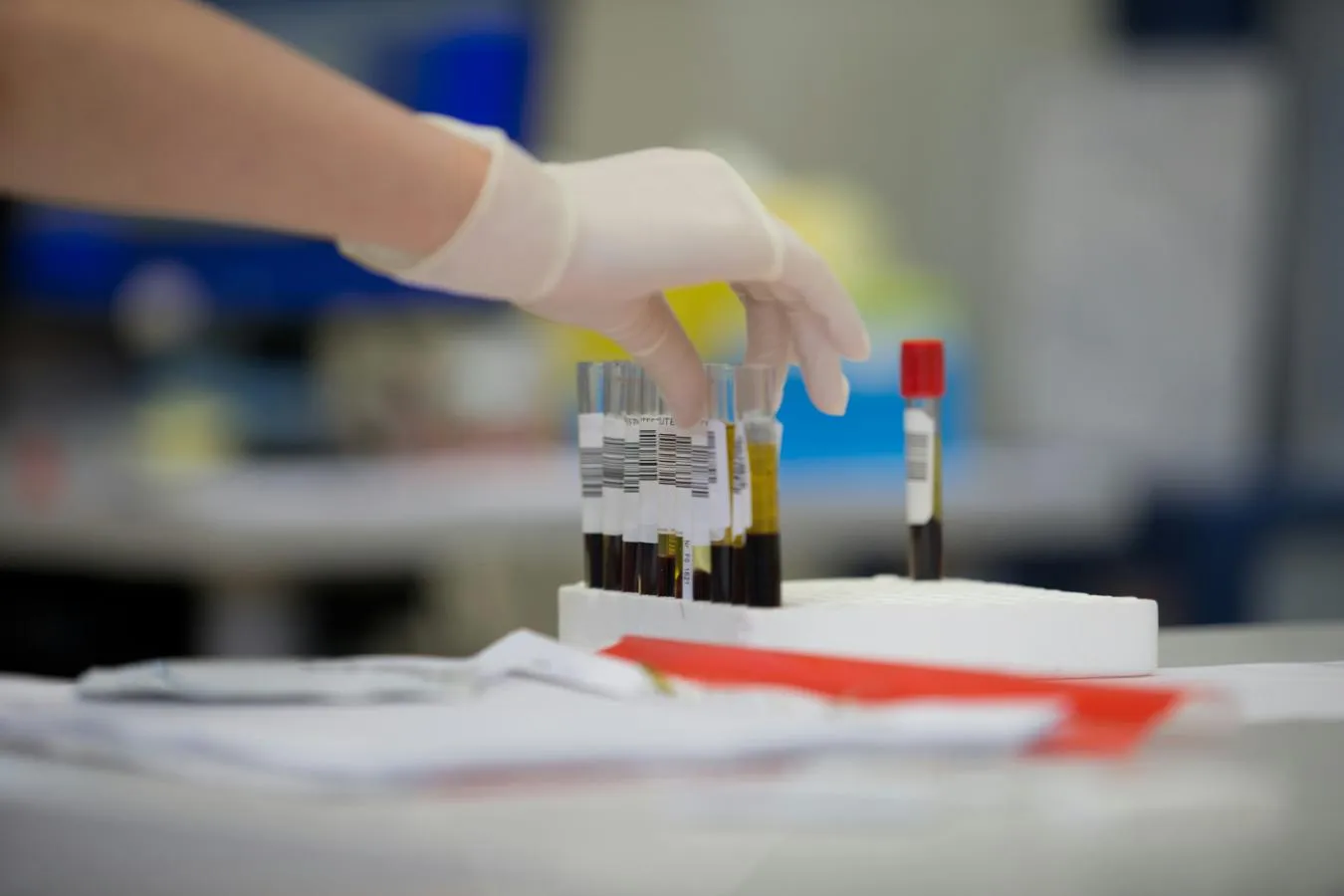Creatine: Your Muscle-Building Ally
Published: 02/02/2024

Concerned about muscle loss as you age?
Don't let muscle loss define your years! A powerful trio of strength training, protein, and creatine can help you build and maintain muscle mass, keeping you strong, independent, and ready to conquer your goals as you age.
By adopting healthy lifestyle habits – think balanced meals, the right supplementation, regular exercise including strength training, and quality sleep – you can achieve improve overall fitness and gain lasting functional independence. Remember, it's never too late to take charge of your health and live a vibrant life, no matter your age.
Aging is not lost youth but a new stage of opportunity and strength! Let me know how I can help you through my consults and programs. I personalize your experience. And if you have menopause concerns, I am a menopause lifestyle specialist!
Creatine, one part of the muscle building formula, acts as a fuel tank refill station for your muscles, helping you push harder, train longer, and ultimately achieve your fitness goals. Studies show creatine can help build muscle, increase strength, and boost performance – exactly what you need to achieve your fitness goals, even as you age.
Discover how creatine works, debunk the myths, and find the best strategies for using this muscle-building ally.
The Silent Threat of Muscle Loss After 45
Muscle Loss:
- Sarcopenia: This natural decline in muscle mass typically starts around 30 and accelerates around 45, potentially leading to weakness, decreased mobility, and increased risk of falls and injuries. Muscle mass decreases approximately 3–8% per decade after the age of 30 and this rate of decline is even higher after the age of 60.
- Loss of strength and power: Reduced muscle mass translates to decreased strength and power, impacting daily activities and exercise capacity.
- Metabolic slowdown: Muscle burns more calories than fat at rest, so losing muscle can contribute to weight gain and hinder weight management.
Other health concerns:
- Increased risk of chronic diseases: Weak muscles are linked to higher risk of diabetes, heart disease, and osteoporosis.
- Functional limitations: Loss of muscle can make everyday tasks like climbing stairs or carrying groceries more challenging.
- Reduced quality of life: Muscle weakness can limit independence and participation in activities, impacting overall well-being.
Time to Turn the Tables: Winning the Battle Against Muscle Loss
It's never too late to turn the tables and build a stronger, healthier you! By incorporating these strategies, you'll equip your body to fight back against muscle loss and emerge victorious.
- Strength Training: Your New Weapon: Embrace strength training as your key ally in this battle. Don't be intimidated by weights; even bodyweight exercises are beneficial. Aim for at least two sessions per week focused on major muscle groups. As you progress, challenge yourself with increased weight, repetitions, or sets. Remember, consistency is key, so find a routine you enjoy and stick with it.
- Fueling Your Muscles: Just like warriors need their rations, your muscles demand proper protein for growth and repair. Aim for 2.2 - 2.65 grams of protein per pound of body weight daily. Prioritize lean protein sources like chicken, fish, beans, and tofu. Consider protein shakes for convenient boosts. Remember, balanced meals with healthy fats and carbohydrates are also crucial for overall health and energy.
- Creatine: Creatine supplementation can be a helpful addition to your arsenal. This naturally occurring substance aids in muscle energy production and recovery. Studies suggest it might enhance strength gains, muscle growth and improved performance especially in combination with strength training. Consult your doctor before starting any supplements, especially if you have any health concerns.
What Is Creatine?
Creatine is a molecule that is produced in the body from the amino acids arginine, glycine, and methionine. It's primarily made in the liver and (to a lesser extent) in the kidneys and pancreas.
Creatine can be found in some animal-based foods and is most prevalent in meat and seafood. Athletes commonly take it as a supplement.
How Does Creatine Work?
Imagine your muscles as tireless engines, constantly demanding ATP (adenosine triphosphate) for fuel. ATP is like the currency your muscles use to contract and power your workouts. Unfortunately, our natural ATP reserves are limited, and we run out quickly during intense exercise. This is where creatine steps in.
Creatine acts as a backup generator for ATP. By storing it as phosphocreatine in our muscles, it quickly replenishes depleted ATP, allowing your muscles to work harder and longer. Think of it like a lightning-fast refueling station, keeping your engine humming throughout your workout.
Creatine works by helping you have more ATP to fuel exercise. By helping to boost your overall performance in the gym, creatine contributes to better muscle growth and strength over time.
The Science Behind the Gains
Numerous studies show creatine's impressive benefits:
- Enhanced Muscle Growth: Creatine boosts your overall training performance, leading to greater muscle protein synthesis and ultimately, more muscle mass over time.
- Increased Strength: By providing extra fuel for your muscles, creatine allows you to lift heavier weights, do more reps, and achieve greater strength gains.
- Improved Performance: Whether you're sprinting, jumping, or pushing iron, creatine enhances your power output and overall athletic performance.
There are many studies that show creatine’s efficacy. Here are a few:
One study (PMID: 29214923) saw participants who took creatine build significantly more muscle than those on placebo, even with the same training program.
A 2020 study (PMID: 32599716) echoed the benefits, showing creatine boosted strength in leg press and chest press compared to placebo, even after just six weeks of training.
Creatine can help build muscle even in older adults. A 2017 meta-analysis of people 57-70 years old (PMID: 29138605) concluded that creatine supplementation increases lean tissue mass and upper and lower body muscular strength during resistance training of older adults.
Debunking the Myths:
Forget the fancy forms and loading phases! Here's the practical truth about creatine:
- Best Form: Stick to creatine monohydrate. It's the most well-studied, effective, and affordable form.
- Micronized: is more water-soluble form and stirs with water more easily. Because micronized doesn’t clump, this may help if you are prone to stomachache after ingesting creatine.
- Optimal Dose: 5 grams per day is sufficient for most people. Adjust slightly based on your body size.
- Timing: It doesn't matter when you take it! Consistency is key, so choose a time that fits your routine.
- Loading Phase: Not necessary! While it can saturate muscle stores faster, you'll reach the same results with consistent daily intake.
- Creatine and Weight Gain: The slight water retention is inside your muscles, making them look fuller, not bloated. It doesn't hinder fat loss.
- Cycling: No need! Creatine is safe and effective for long-term use. Stopping won't make it more effective later.
- Hair Loss: This myth is unfounded. Studies show no link between creatine and hair loss.
Creatine as your trusted muscle-building partner
Creatine as your trusted muscle-building partner.
Remember:
- Choose monohydrate.
- Take 5g daily.
- Be consistent.
- Forget the myths.
- With creatine fueling your workouts, you'll unlock your full muscle-building potential and reach your fitness goals faster. So, start your creatine journey and experience the power of this scientific muscle-building wonder!
How Creatine Can Affect Blood Lab Tests

Taking creatine can affect blood test results
Taking creatine supplements can affect certain blood lab results, most notably those related to kidney function. It's crucial to understand why this happens and what to communicate to your doctor to ensure your results are interpreted correctly.
The Key Difference: Creatine vs. Creatinine
The main impact of creatine supplementation is on a lab marker called creatinine. The two substances have similar names, but they are different:
Creatine: A substance produced naturally by your body and stored in your muscles to provide energy. It's also the compound you take in a supplement.
Creatinine: A waste product created when creatine is broken down in your muscles. Your kidneys filter creatinine out of your blood and excrete it in your urine.
A blood creatinine test is a standard way to estimate how well your kidneys are filtering waste. Doctors use this level to calculate your estimated Glomerular Filtration Rate (eGFR), which is a key indicator of kidney health.
How Creatine Affects the Results
When you take a creatine supplement, you increase the amount of creatine in your body. This naturally leads to an increase in the production of the waste product, creatinine. As a result, a blood test may show:
Elevated Serum Creatinine: Your blood creatinine level may be higher than the normal range for someone of your age and sex.
A Falsely Low eGFR: Because the eGFR calculation is based on your blood creatinine level, a higher reading can cause the estimated filtration rate to appear lower than it actually is. This can create a false impression of kidney dysfunction.
What You Should Do
It is essential to tell your doctor that you are taking a creatine supplement before any blood test, especially one for kidney function. This information will prevent a misdiagnosis of a kidney problem. Your doctor can interpret the results in context and may:
Ask you to stop taking creatine for a few days before the test to get a more accurate baseline reading.
Order a more specific test, such as a creatinine clearance test (which measures creatinine in a 24-hour urine sample) or a cystatin C test, which is a different marker of kidney function that is not affected by muscle mass or creatine intake.
Is Creatine Safe for Kidneys?
While creatine can alter your lab results, numerous studies have shown that it does not cause kidney damage in healthy individuals when taken at recommended doses. The elevated creatinine levels are a harmless side effect of the supplement's metabolism, not an indicator of a health issue.
However, if you have a pre-existing kidney condition, it is critical to consult with a healthcare professional before starting creatine supplementation.
Creatine Use and Preexisting Health Conditions - Who Should Not Take Creatine
Creatine supplementation may not be recommended for certain individuals, particularly those with preexisting health conditions. These groups include:
Individuals with Kidney Problems: Creatine might be unsafe or worsen the condition for people who already have kidney disease. Patients with kidney disease should avoid using this supplement, as there are reports that even recommended doses may cause kidney damage.
Individuals with Bipolar Disorder: Creatine might exacerbate mania symptoms in people with bipolar disorder.
Individuals with Parkinson's Disease: Taking creatine in combination with caffeine may worsen the symptoms of Parkinson's disease.
Individuals with Existing Liver Conditions: People with preexisting liver conditions or those taking liver-metabolized medications should consult a healthcare provider before using creatine, as high doses have been occasionally associated with elevated liver enzymes
Connect with Me!

If you need an individualized plan contact me to work with me 1-on- 1.
Want the scoop on the latest nutrition research, healthy recipes, and nutrition tips delivered directly to your inbox?
Write and let me know you'd like to subscribe to my newsletter! *
*I will never share your information!
Categories: Active Healthy Aging Fitness Health Conditions Nutrition Supplements







